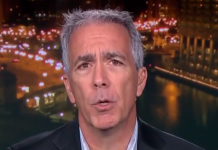Americans have heard about, seen the effects of, and grown to be worried about how gerrymandering affects our political system and the elections within our nation. Often the districts themselves are mathematically carved out so that incumbents, particularly GOP incumbents, can pick their voters rather than having the voters choose their representatives.
This results in skewed elections where individuals and parties who are receiving the minority of the vote yet come out the winners on election night.
Now it appears that Trump may be reshaping the judiciary in a manner that will in effect gerrymander legal rulings that support his conservative agenda.
It is a strategy that goes back to 2010 when the Tea Party swept Congress and stopped President Obama from enacting much more of an agenda that he had set forth from his 2008 electoral victory. The skeleton-crew federal courts operated with nearly 100 vacant seats as the Senate refused to fill any Obama appointment, including the final insult to injury: refusing to hear a SCOTUS nomination from President Obama, something unprecedented in US political history.
Now that the GOP control both houses of Congress, as well as the White House, judicial nominations, appointments, and confirmations, have been sailing through the Senate with ease despite the qualifications or conflicting ideology of any justice Trump appoints.
Most recently the Consumer Financial Protections Bureau, enacted into law to protect people from predatory banking practices such as the one that crashed the global economy in 2009, fell into a quagmire when the head of the agency stepped down.
President Trump quickly moved to fill the position with someone who wants to dismantle the agency, Rick Mulvaney, and a legal battle ensued from within the CFPB. A federal justice recently appointed by Trump ruled in his favor, and it remains to be seen just how many of these radical appointments will continue to bend the institutions of government and break the separation of powers.
With dozens of appointments still to be made by the Trump Administration, it appears that a separation of powers doctrine may not last after all. Without the action of citizenry petitioning the removal of radical justices in the federal courts, the United States is headed towards a very different future that continues to restrict the rights of its citizens in favor of those who already have more than enough.










